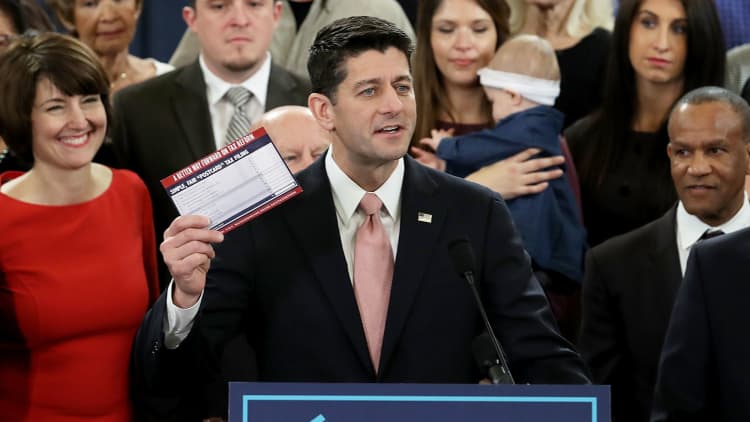One aspect of the new tax plan unveiled Thursday — introduced by House Republicans — calls for killing what the GOP refers to as the "death tax."
Under current rules, a taxpayer can pass up to $5.49 million to heirs tax-free. For married couples it's nearly $11 million. Above that amount, beneficiaries must pay a federal estate tax of 40 percent. (Currently, there are also 15 states and the District of Columbia that assess an estate tax, according to the Tax Foundation.)
Under the new proposal, coined the Tax Cuts and Jobs Act, the estate tax exemption will double and then be repealed as of 2024.
In addition, there would continue to be a "step-up in basis," which means if you inherit shares of stock, for example, and turn around and sell those shares, you wouldn't pay any capital gains taxes either.
"That's a double win for the beneficiaries," said Bill Smith, managing director at CBIZ MHM. "It would be hard to argue that's a benefit for the middle class."
Because of the sky-high threshold, only the wealthiest Americans now pay the federal levy. The Tax Policy Center estimated there were about 11,310 estate returns filed and about half of those were taxable for 2017. Still, the amount of tax collected on those returns was just under $20 billion, the Tax Policy Center said.
However, any tax code changes could just as easily be undone in the next election cycle, said Brad Dillon, a senior wealth planner at Brown Brothers Harriman in New York City. "Since the ancient Egyptians there's been some form of an estate tax," he said. "We'll plan as though there will be an estate tax [again] at some point."
The estate tax has been on a roller coaster since first imposed in 1917, when 10 percent was levied on portions of an estate exceeding $5 million.
At its peak in the 1940s, it charged 77 percent on portions of more than $10 million, then 70 percent for amounts over $5 million from 1976 to 1982.







